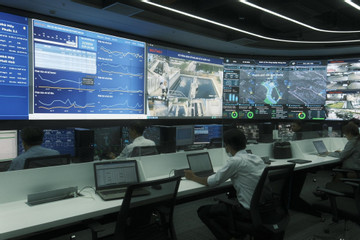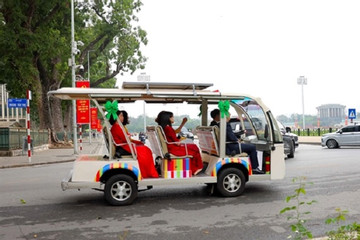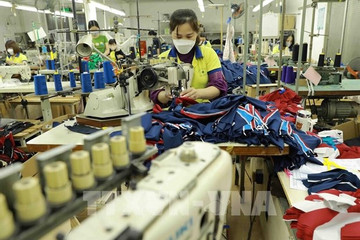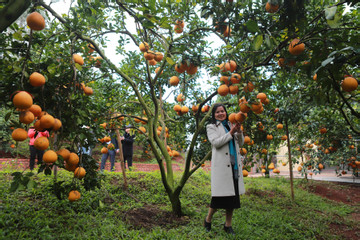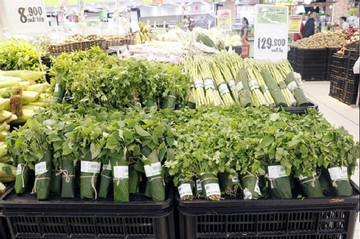- © Copyright of Vietnamnet Global.
- Tel: 024 3772 7988 Fax: (024) 37722734
- Email: [email protected]
green economy
Update news green economy
Green export a vital part of future Vietnamese economy: forum
A forum on green export promotion was held in Hanoi on December 4 to help Vietnamese enterprises switch to sustainable and low-carbon growth models and improve their competitiveness amidst globalisation.
MPI proposes a national economic sectors system prioritising the green economy
The Ministry of Planning and Investment (MPI) is currently seeking public feedback on a draft decision from the Prime Minister to establish a new national economic sectors system, which includes a National Green Economy framework.
Economists urge new legal framework for green economy
Economist Dr Vo Tri Thanh says that greenization is a revolutionary trend that will change business models, lifestyles, investments and legal frameworks.
Green consumption becomes popular trend in HCM City
The retail market in Ho Chi Minh City shows a shift towards the green consumption trend.
Vietnam's path to a green economy: Challenges and opportunities
Vietnam is progressing its energy transition by decreasing its dependence on fossil fuel-based electricity and prioritising the development of clean, sustainable energy sources to mitigate greenhouse gas emissions.
Three strategies for a prosperous green economy in VN
Prof Ha Duong Minh, a Vietnamese-born French scientist who has conducted research on the environment and development, spoke recently about important policies Vietnam should prioritize to obtain sustainable development.
Binh Duong prepares green business environment to attract more investors
Binh Duong needs to prepare a more fully green environment to lure more investors, said Chairman of Binh Duong Province Vo Van Minh in an interview with VietNamNet.
Green energy conversion a key global trend: experts
Vietnam aims to bring net greenhouse gas emissions to zero by 2050, so ideally all means of transport would be using green energy.
Green economy: finish line cannot be reached overnight
Developing green economy and green agriculture is a ‘growing trend’ in Vietnam which will help it reach the ‘net zero’ goal by 2050 as committed at COP 26. However, many business owners think that it is far-fetched and unnecessary for now.
Breakthrough policies look towards green economy
Extended producer responsibility (EPR) holds producers and importers responsible for the entire lifecycle of their products, including their disposal and recycling.
Receiving guests at orchards, farmers are pocketing big profits in agritourism
Vietnamese farmers grow crops and fruits to sell farm produce, of course, but also to provide services as part of agritourism, which is helping farmers earn billions of dong a year.
Local distributors should be encouraged to sell made-in-VN green products
It is necessary to develop policies to encourage domestic distribution systems to give priority to selling products made by local producers who are making effort to promote green and circular production and business ethics, experts have said.
Vietnam vows to reduce net emissions to zero
Following the Summit for a New Global Financing Pact in late 2023, Vietnam has been accelerating its efforts toward green transition, digital transformation, and a knowledge-based and circular economy, striving for zero percent net-emissions by 2050.
Support policies needed to develop green hydrogen in VN
The support policies for hydrogen development need to reduce risks to investors by including hydrogen in the national energy planning to create a legal framework and priority list for hydrogen development projects and related fields.
VN praised by partners for green development measures
Prime Minister Pham Minh Chinh at the Vietnam Business Forum in early December 2023 affirmed that green transition, together with digital transformation and innovation, are strategic choices and top priorities for Vietnam.
Green transition: VN aims to keep pace with world
Promoting green economy and mitigating the impact of climate change are the top urgent goals of the world, including Vietnam.
Vietnam advances in Green Future Index 2023
Vietnam has made progress in the Green Future Index 2023, climbing from its previous 56th position to a commendable 53rd place this year.
Emission trading system under construction in VN
Vietnam has begun to develop carbon pricing instruments and an emission trading system (ETS) to incentivise firms to reduce their greenhouse gas (GHG) emissions and move towards the use of clean energy.
VN considers domestic carbon credit exchange
This initiative aims to boost centralisation, transparency, and overall efficiency in managing related transactions, according to Tang The cuong, Head of the Department of Climate Change under the Ministry of Natural Resources and Environment.
Managing energy to reduce emissions: where should VN businesses start?
Many countries are now adopting emissions trading systems as a means to reduce annual emissions. Vietnamese firms, thus, must understand and participate in this market.






